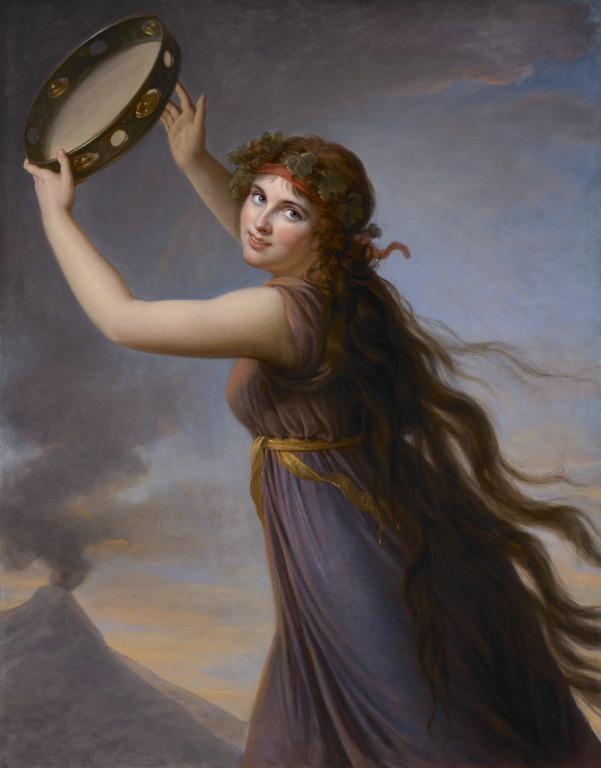
Information
This painting of Emma, also known as Lady Hamilton, captures her mid-performance, playing a dancing Bacchante. Emma became famous and notorious in British artistic and society circles for these performances. With the help of veils and shawls she would pose in imitation of the figures on the Greek and Etruscan vases collected by her husband, nine of which are also in the Lady Lever's collection.
Vigée-Lebrun seems to have painted Emma on four occasions during the artist's stay in Naples between 1790 and 1792. The Lady Lever's portrait is thought to have been painted in 1792, shortly after Emma's marriage in 1791 to her much older and besotted admirer, Sir William Hamilton, Britain's diplomatic envoy to the Kingdom of Naples.
The Lady Lever's portrait remained with the artist all her life and was inherited by her niece. Whilst it was in the artist's studio she made various changes to it which were discovered during conservation work in 2015. One of the veils that Emma used in her performances originally floated down from her raised right hand, but this was painted out. The artist also adjusted the sleeve of Emma's ancient-Grecian-style tunic so as to show more of her slim upper arm and shoulder, making her even more alluring.
Like Emma Hamilton, Vigée-Lebrun had a dramatic life. During the French Revolution she fled the French court where she had been portraitist and confidante to Queen Marie-Antoinette. She also had to abandon her art-dealer husband, taking her young daughter with her around the courts of Europe. There she made her career as an internationally-known portraitist in a mainly male world. Vigée-Lebrun admired Emma's astute ability to make her way in society through her acting skills and beauty, describing, "her great quantity of beautiful chestnut hair which could cover her entirely and as a bacchante, with her hair spread out, she was admirable". But she mocked Emma's vulgar dress-sense and lack of intelligence, criticising her sarcasm. English commentators, such as Lady Holland (1771 - 1845), also derided the Wirral-born Emma's provincial accent.
Specifications
- Accession number
- LL 3527
- Collection type
- Painting
- Artist
- Élisabeth Vigée Le Brun
- Place made
- Europe: Southern Europe: Italy: Naples
- Date made
- 1790 - 1792 about
- Materials
- Canvas; Oil
- Measurements
- Canvas/support:132.5 x 105.5 cm; Frame: 159 cm x 131.5 cm x 12.5 cm
- Credit line
- Purchased by William Hesketh Lever for the Lady Lever Art Gallery in 1903
- Legal status
- Permanent collection
- Provenance
- Location
- On display: Lady Lever Art Gallery, Room 06
- Publications
